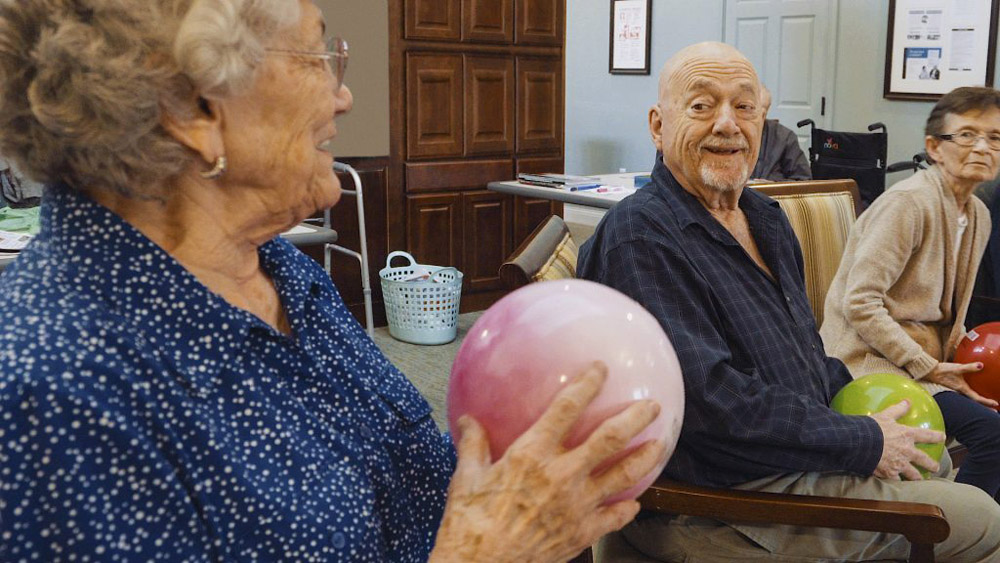Memory Care Explained: Understanding Services That Make a Difference
Memory care solutions have actually become an important source for people facing cognitive problems, such as Alzheimer's and dementia. These specific programs not just provide safe and secure atmospheres and skilled personnel yet also include tailored tasks that improve cognitive interaction and psychological well-being. Comprehending the variety of treatments and assistance systems offered is important for families steering with these complex choices. As we explore the various components that add to reliable memory care, it becomes clear that the best choices can considerably affect the quality of life for both residents and their households.
Introduction of Memory Care

Specialized Therapies Available
A number of specialized therapies are offered within memory care services, each tailored to address the unique difficulties faced by people with cognitive disabilities. These treatments aim to enhance cognitive functioning, promote emotional well-being, and improve total quality of life.One widely secondhand strategy is memory treatment, which motivates individuals to show on past experiences with photographs, songs, and familiar objects. This technique can stimulate memories, stimulate discussion, and foster connections with caretakers and peers.Another effective treatment is cognitive excitement therapy (CST), created to engage people in mental exercises that promote cognitive abilities and social interaction. CST sessions often involve challenges, quizzes, and discussions, supplying structured cognitive challenges that aid maintain mental agility.Art and music treatment are also indispensable parts of memory care. These treatments utilize innovative expression to help with communication and emotional release, frequently benefiting those who might have problem with spoken communication.Additionally, animal-assisted therapy has gained acknowledgment for its capacity to lower stress and anxiety and advertise social interaction with the existence of treatment pets. Jointly, these specialized treatments play a crucial function in boosting the lives of people with memory impairment, fostering a supportive and enriching setting.
Engaging Tasks and Programs
Engaging activities and programs play an essential role in memory care services, offering people boosting chances that promote cognitive involvement and social communication. Tailored to the special demands of locals, these tasks consist of arts and crafts, songs treatment, memory video games, and workouts. Such programs are created not only to improve cognitive function but additionally to promote a sense of success and community (Alzheimer’s Care Charlotte).Social interaction is an essential part of memory care, as it helps in reducing feelings of seclusion and depression typically experienced by people with memory problems. Group activities encourage communication and partnership, developing a setting where citizens can share experiences and develop relationships.Moreover, engaging tasks can be adapted to differing degrees of cognitive capacity, making certain that all participants can engage meaningfully. Team member learnt memory care help with these programs, supplying assistance and encouragement tailored to every individual's capabilities.Incorporating familiar routines and interests right into these activities can further improve their performance, aiding homeowners link with their past and keep a sense of identity. Generally, an all-round selection of interesting tasks improves the lives of those in memory care, contributing to their overall health and lifestyle
Significance of Household Assistance

Selecting the Right Facility
Picking the ideal memory care facility is an essential decision that needs careful factor to consider of different factors. Initially, analyze the degree of care your loved one requirements. Facilities vary in their offerings, from fundamental aid to specialized memory care programs customized for problems such as Alzheimer's and other dementias.Next, consider the atmosphere of the center. An inviting, protect, and comfy ambience can considerably affect a citizen's well-being. See capacity centers to assess their sanitation, safety and security attributes, and general setting. Observe personnel communications with citizens, as compassionate and qualified caretakers are essential to top quality care.Additionally, ask regarding the center's staffing ratios and certifications. Memory Care Charlotte. Adequate staffing guarantees personalized focus and timely reactions to residents' demands. Evaluate the schedule of tasks and programs that promote interaction, socialization, and cognitive excitement, as these are critical for maintaining lifestyle
Often Asked Inquiries
What Is the Cost of Memory Care Solutions?
The price of memory care solutions varies substantially based upon area, facility type, and level of care needed. On standard, households can expect to pay between $4,000 and $7,000 each month - Dementia Care. These expenses usually incorporate housing, dishes, individual care, and specialized assistance for memory-related conditions. It is important for family members to study options thoroughly and consider economic support programs, insurance coverage, and prospective long-lasting care planning to take care of these expenses efficiently

Exactly How Is Team Educated to Deal With Memory Care Citizens?
Team training for memory care citizens is comprehensive and specialized, concentrating on recognizing the unique demands of individuals with cognitive problems. Programs commonly include education on dementia-related problems, communication techniques, habits administration, and psychological assistance techniques. Training also highlights the relevance of producing a secure and revitalizing setting. Continuous education and hands-on experience guarantee staff are equipped to supply thoughtful care, promoting dignity and respect for citizens while promoting their overall wellness.
Are Memory Care Facilities Licensed and Managed?
Yes, memory care centers are subject to licensing and governing oversight, which varies by state - Dementia Care. These guidelines guarantee that centers satisfy specific criteria associated with safety, care top quality, staffing, and resident civil liberties. Normally, state health divisions or governing bodies perform inspections and check compliance to safeguard homeowners with memory impairments. Prospective homeowners and family members should verify a facility's licensing standing and governing history to establish appropriate care and assistance services are provided
Can Locals Customize Their Living Spaces?
Yes, citizens in memory care centers often have the chance to customize their home. This personalization might consist of picking decorations, preparing furnishings, or showing personal belongings, which can help produce a sense of knowledge and convenience. Such modification is encouraged to advertise originality and enhance the psychological well-being of residents. Any kind of changes are usually subject to center guidelines to guarantee safety and security and keep an encouraging atmosphere for all homeowners.
What Are the Going To Hours for Household Members?
Seeing hours for household participants are generally developed to ensure that residents receive ideal care while preserving meaningful connections with their enjoyed ones. These hours may vary by facility, but generally, visitation is enabled during marked times, typically in the afternoon and very early night. Memory Care. It is a good idea for family members to confirm particular checking out hours with the facility to ensure conformity with any kind of policies in position, as well as to enhance the general experience for both residents and visitors